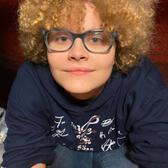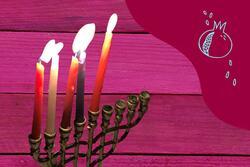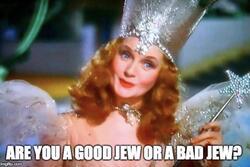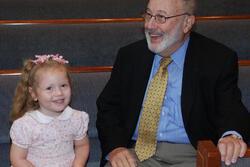Finding My Voice As a Patrilineal Jew
Earlier this year, I put together a speech for my school’s Speech and Debate team that started with: “I’m Jewish. Kind of.” When I wrote it, this line was the only way I could think to describe my feelings about being a patrilineal Jew. The definition of patrilineal is “based on relationship to the father” and what this means for my Judaism is…complicated.
Historically, Judaism has been largely matrilineal (based on relationship to the mother). A simplified explanation of what that means in day-to-day life is that if your mom is Jewish, congrats, you’re Jewish! And if your mom isn’t, but your dad is, it gets a little more confusing. In some communities, largely Reform or Reconstructionist, being a patrilineal Jew is just as valid as being matrilineal—but in most Orthodox or Conservative communities, that’s not the case. In those communities, people with a Jewish father and non-Jewish mother need to convert to be considered a “real Jew.”
As a patrilineal Jew who doesn’t particularly know what denomination I belong to, this disparity makes navigating the Jewish community as a whole pretty intimidating. Even though I exist mostly in Reform and Reconstructionist spaces that technically do see me as a “real Jew,” it often doesn’t feel that way. I’ve had friends at school tell me that I “kind of count” as Jewish and my own mom jokingly call me “a fake Jew.” Even though these comments are meant in a light-hearted way, it makes me feel almost unwelcome in Jewish spaces. And even when a situation is designed to be inclusive of all Jews, it can still end up accidentally othering patrilineal members of the community.
For example, one of our Rising Voices Fellowship (RVF) assignments was to conduct an oral history interview with a Jewish woman. The assignment was really interesting, and I loved getting to learn about oral history and hear more female perspectives on Judaism. However, when it was time to pick someone to interview, I panicked. Most of my friends in RVF had Jewish women in their families that they could have interviewed, whether it was a grandma, mom, aunt, or cousin—except me. My dad is also a patrilineal Jew, meaning my grandmother is not Jewish, and my dad’s only sister is also patrilineal. Even though I could—and did—pick a non-family member for the interview project, and enjoyed the assignment as a whole, it still made it clear to me that I am different from my Jewish peers.
This feeling of being different isn’t unique to me, either. There are plenty of articles online written by patrilineal Jews about their experiences. A common theme in these articles, and in my own life, is the feeling of needing to prove yourself—of needing to somehow justify your Judaism to others—when the matrilineal Jews around you don’t need to do the same thing. The main emotion I feel when engaging in conversations about Judaism with other Jews is apprehension. I’m not sure if I will be perceived as a Jew on equal footing, or as somehow “other.” When talking about religion or holidays with my best friend, who is also Jewish, I find myself fact-checking everything I say before I say it (even when I’m confident that I have the correct information) to make sure that I won’t say anything that reveals that I’m not a “real Jew.”
Honestly, in any context, the idea of there being one type of “real Jew” doesn’t really sit right with me. The Jewish community is incredibly diverse, with people from a wide variety of backgrounds and locations, and an even wider variety of beliefs, practices, languages, and traditions. I think being a patrilineal Jew should be viewed as just one more of the many ways to be Jewish. In my ideal world, it wouldn't matter that my dad is the one who taught me the history of my culture instead of my mom, but obviously that’s not the world we live in.
Other Jews, especially matrilineal Jews, can help bridge the gap and make patrilineal Jews feel more welcome in Jewish spaces by learning more about what it means to be patrilineally Jewish! Of course, this blog post only covers a little bit about the history of patrilineal Judaism, and there are many more perspectives to consider. It’s equally important to hear the stories of patrilineal Jews who have converted (or, like myself, are considering conversion at some point in the future) as it is to hear from patrilineal Jews who are living proudly just the way they are.
An example of a story that talks about patrilineal Judaism is the short story Neilah by Hannah Moskowitz. In this work, Moskowitz discusses complicated feelings about religion and being a “good Jew” from the perspective of a patrilineally Jewish young woman. It is a story that makes me feel seen, and I highly recommend it as an introduction into the world of patrilineal Judaism.
When I give my speech about being Jewish for the last time at my final Speech and Debate tournament, I’m not sure I will feel the same way that I did at the beginning of the year. I still sometimes think of myself as only “kind of” Jewish, especially when I’m in spaces that are more traditional. But through reading stories like Neilah and articles by patrilineal authors, I’ve started to see myself as much of a “real Jew” as anyone else—whatever that means, anyway!
This piece was written as part of JWA’s Rising Voices Fellowship.







